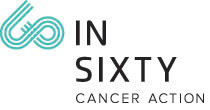Primary Care and Cancer
This is a portal to tools and resources clinicians and others in your practice can access at any time that highlights:
- Clinical support for cancer patient care
- Changes in the health care and cancer system that affect primary care clinical practice or office work flow
The information is grouped onto four main headings and pages, with quick links on the left. Click on the headings to jump to those sections:
- Clinical Tools and Supports developed for primary care providers in Manitoba: Access Cancer Patient Journey Clinical Pathways, navigation services, the CancerQuestion Helpline and other valuable diagnostic resources.
- Enhance Office Practices: Use tools that can help the office be more efficient. For example, getting referrals and requisitions “Out the Door in 24 (Hours)” and improving the management of referrals and requisitions.
- Enhance Communication: Access guides, articles and resources that can help improve and strengthen communication between clinicians and patients, and other health care providers.
- Connect with Education: Learn about upcoming CME, education and training events through UPCON and In Sixty partners, including on demand sessions right at your clinic or in your community.
If you have any comments or feedback on this site, or have a question for the Primary Care Working Group of In Sixty, please send us an email.
 WHAT DOES IN SIXTY CANCER PATIENT JOURNEY INITIATIVE MEAN FOR MY PATIENT?
WHAT DOES IN SIXTY CANCER PATIENT JOURNEY INITIATIVE MEAN FOR MY PATIENT?
The Cancer Patient Journey ‘In Sixty’ initiative aims to help primary care clinicians get their patient through the diagnosis stage and to a first treatment within 60 days. At the start of the initiative, the time frame for this phase of a cancer journey was anywhere from three to nine months (CancerCare Manitoba 2012).
WHEN DO THE 60 DAYS BEGIN?
The start point of clinical suspicion has been defined as the date of the patient visit when a health care provider suspects cancer and thus initiates diagnostic testing or specialist referral. The start point can also include the date of abnormal result, such as from a screening test at a cancer screening program (such as BreastCheck, ColonCheck, CervixCheck).
HOW CAN PRIMARY CARE PROVIDERS HELP RIGHT NOW?
Incomplete diagnostic requisitions and referral forms can result in delays in diagnostic work-ups and delays in surgery and other treatment bookings. By filling out requisitions and forms completely and accurately, every time, clinicians can save several days to weeks of back and forth paperwork between offices.
PRIMARY CARE RELATIONSHIPS WITH CANCER PATIENTS
Patients say they value their trusted relationship with their family physician/nurse practitioner and need that one consistent care provider to empower them and talk to them throughout their journey. Stay involved with patients throughout their entire journey - patients benefit by having their primary care provider involved and thoughtfully communicating sensitive information, even when other specialists are involved. Stay in contact with the specialists, and when things get confusing for the patient, be their advocate and help them access the right care and resources
Cancer Question Help Centre for Primary Care: |


